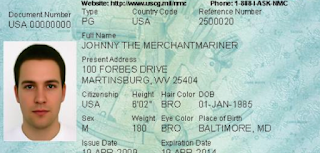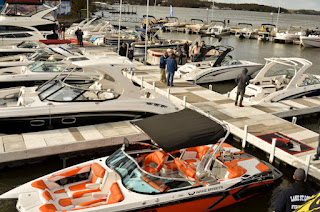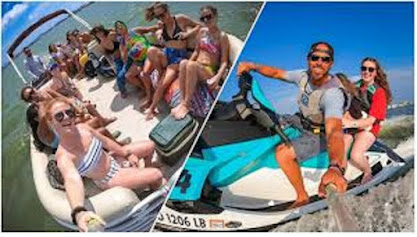Boat Charters Legal Part 2
Four individuals have been charged in a conspiracy to sell phony Coast Guard merchant mariner credentials in Norfolk, Va., the U.S. Department of Justice announced yesterday.
According to allegations in the unsealed indictment, Lamont Godfrey, 42, of Portsmouth, Va., Eugene Johnson, 45, of Norfolk, Va., Shunmanique Willis, 43, of Texas, and Alonzo Williams, 45, of Louisiana, acted in concert to create counterfeit certificates from the Mid-Atlantic Maritime Academy (MAMA) in Norfolk and sell them to merchant mariners for a profit. MAMA is a private state-of-the-art maritime training center, offering mariners over 100 Coast Guard-approved deck and engineering courses needed for merchant mariners to hold various positions on merchant vessels. Godfrey worked for the MAMA as the school’s chief administrator.
According to the indictment, Godfrey used this position to create fake MAMA course certificates for mariners who had never taken the MAMA courses, in exchange for thousands of dollars in payments. The mariners would receive the fake certificates along with instructions on how to load them in the Coast Guard systems and be credited with a fraudulent Coast Guard qualification. Johnson, Willis, and Williams worked with Godfrey as brokers to find additional mariners willing to buy the fake certificates. In exchange for their efforts, Johnson, Willis, and Williams all received a cut of the illicit proceeds from the scheme. In total, the conspiracy netted over $200,000 in profits from the production of these counterfeit MAMA certificates and involved over 150 mariners purchasing fraudulent qualifications.
Godfrey, Johnson, Willis, and Williams are charged with conspiracy, mail fraud, wire fraud, and aggravated identity theft. If convicted, they face a mandatory minimum of two years in prison. Actual sentences for federal crimes are typically less than the maximum penalties. A federal district court judge will determine any sentence after taking into account the U.S. Sentencing Commission guidelines and other statutory factors.
G. Zachary Terwilliger, U.S. Attorney for the Eastern District of Virginia, and Marty J. Martinez, special agent in charge, Coast Guard Investigative Service, Chesapeake Region, made the announcement.
Assistant U.S. Attorney Joseph L. Kosky is prosecuting the case.
A copy of this press release is located on the website of the U.S. Attorney’s Office for the Eastern District of Virginia. Related court documents and information are located on the website of the District Court for the Eastern District of Virginia or on PACER by searching for Case No. 2:20-cr-95.
The Coast Guard urges anyone paying for a trip on a passenger vessel to verify that their captain has a safety plan and a Merchant Mariner Credential. For larger charter boats, ask to see a Coast Guard issued Certificate of Inspection. If the operator cannot produce appropriate credentials, passengers should not get on the boat.
Thousands of people each year apply to the Coast Guard to become licensed whether they are recreational boaters or interested in starting commercial ventures. The fact that so many people have taken steps to become a USCG licensed captain speaks volumes about the allure, attraction, and aura of earning your license.
WHAT IS A USCG CAPTAIN'S LICENSE?
A USCG captain's license is a credential issued by the United States Coast Guard that enables the holder to operate a commercial vessel. The two main licenses are the OUPV/Six-pack and the Master License, and endorsements can be added for sailing vessels or assistance towing. These licenses can be obtained by taking the exam and meeting other requirements such as passing a physical and drug test, having a minimum amount of boating experience, and passing a background check.
WHEN DO YOU NEED A CAPTAIN'S LICENSE?
You need a captain's license in order to transport passengers commercially. The OUPV or Six-pack license allows you to carry up to six passengers for hire whereas the Master License is required for inspected vehicles carrying six or more passengers. While a captain's license is not required for personal use, some boaters seek out courses to brush up on their skills and feel the pride that comes with getting a USCG license.
- Up to $7,846 for failure of operators to be enrolled in a chemical testing program.
- Up to $4,888 for failure to provide a Coast Guard Certificate of Inspection for vessels carrying more than six passengers for hire.
- Up to $16,687 for failure to produce a valid Certificate of Documentation for vessels over 5 gross tons.
- Up to $12,219 for failure to have been issued a valid Stability Letter prior to placing vessel in service with more than passengers for hire.
- Up to $95,881 for every day of failure to comply with a Captain of the Port Order.




Comments
Post a Comment